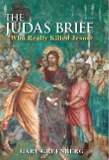Many scholars believe that the Song of Deborah in Judges 5 may be one of the oldest if not the oldest textual strands in the bible. I don't know how widespread that view is currently but when you read the poem it seems to describe a proto-Israel that existed prior to the writing of Genesis. It has a geo-political description of the Israelite tribes that numbers fewer than twelve and some of them are not among the Twelve Tribes that emerge in Genesis. At the minimum, it seems to reflect a time when the tribe of Dan was located on the Philistine coast rather than the northern edge of Israel as depicted in later traditions.
Several years ago I presented a paper at an Egyptological conference entitled Neith and the Two Biblical Deborahs, which explored the possible connection between the Egyptian goddess Neith, Deborah the Judge and Deborah the nurse of Rebecca. Neith was an important Egyptian goddess who was prominent in the areas where the bible places Israel prior to the Exodus. Here is the Abstract for the paper
The bible makes reference to two separate women named Deborah. One was the nurse to Abraham's son Isaac and the other was, in the much later period of the Judges, a military leader referred to as "a mother in Israel". Both seem to have mythic images and both are identified with a particular Tree of Weeping.
The Egyptian goddess Neith has a reputation as both a military figure and as a mother goddess and nurse, characteristics that caused the Greeks to identify her with the goddess Athena. In Hebrew, Deborah means "Bee" and that symbol is closely identified with Neith. A Temple to Neith was called "House of the Bee", and the Bee was the symbol of kingship in Lower Egypt.
In this paper I will argue that both Deborahs were mythological figures based on Hebrew recollections of the goddess Neith, the goddess who ruled in the area of Egypt where Israel dwelled in earlier times. In support of this argument I will draw upon some materials in Plutarch's account of the Osiris myth, which suggests that Neith may have been associated with a Tree of Weeping. I will also make other mythological comparisons between Neith and the two Deborahs.
To read the article go here.



2 comments:
omG
omG
Post a Comment